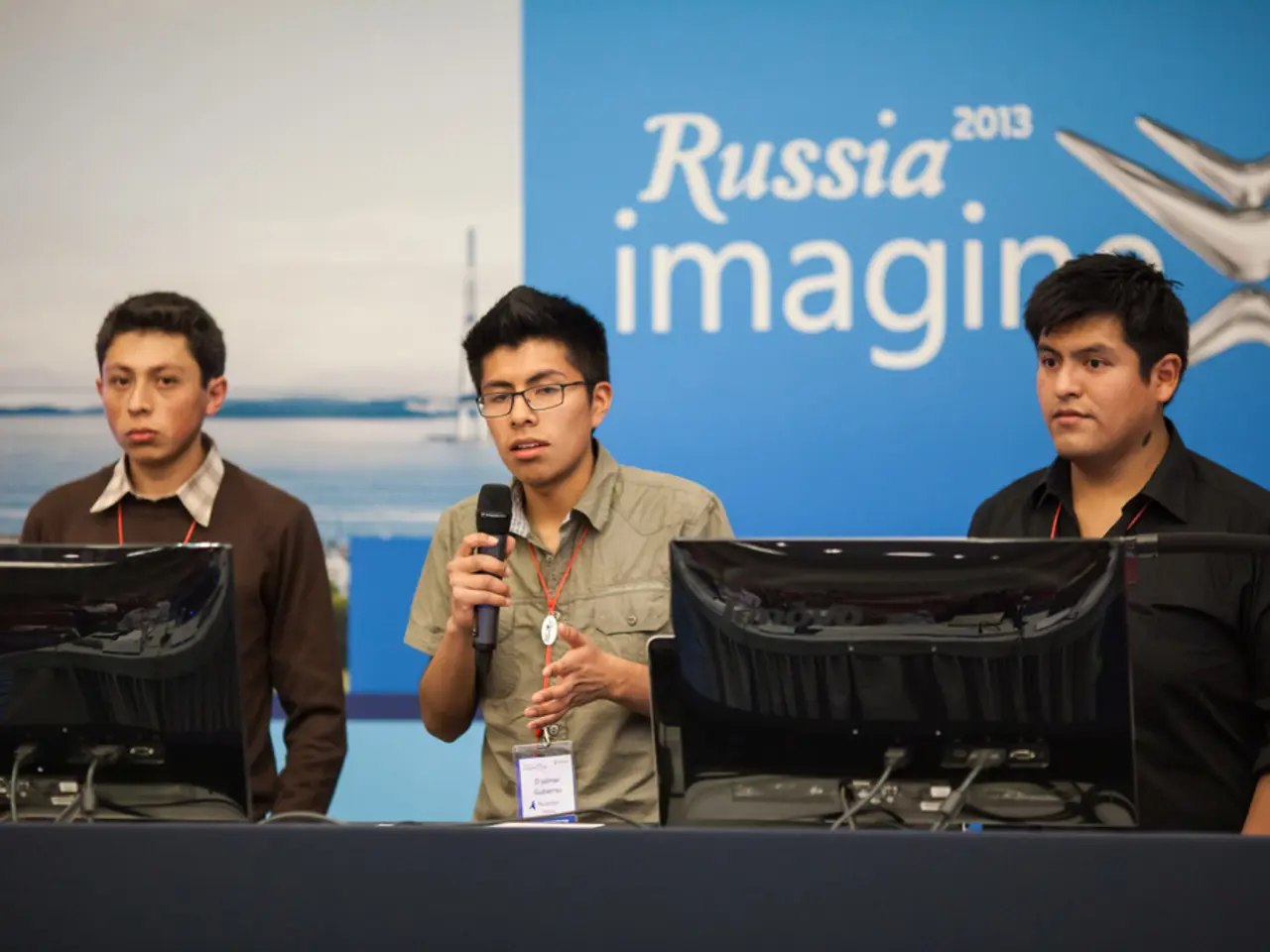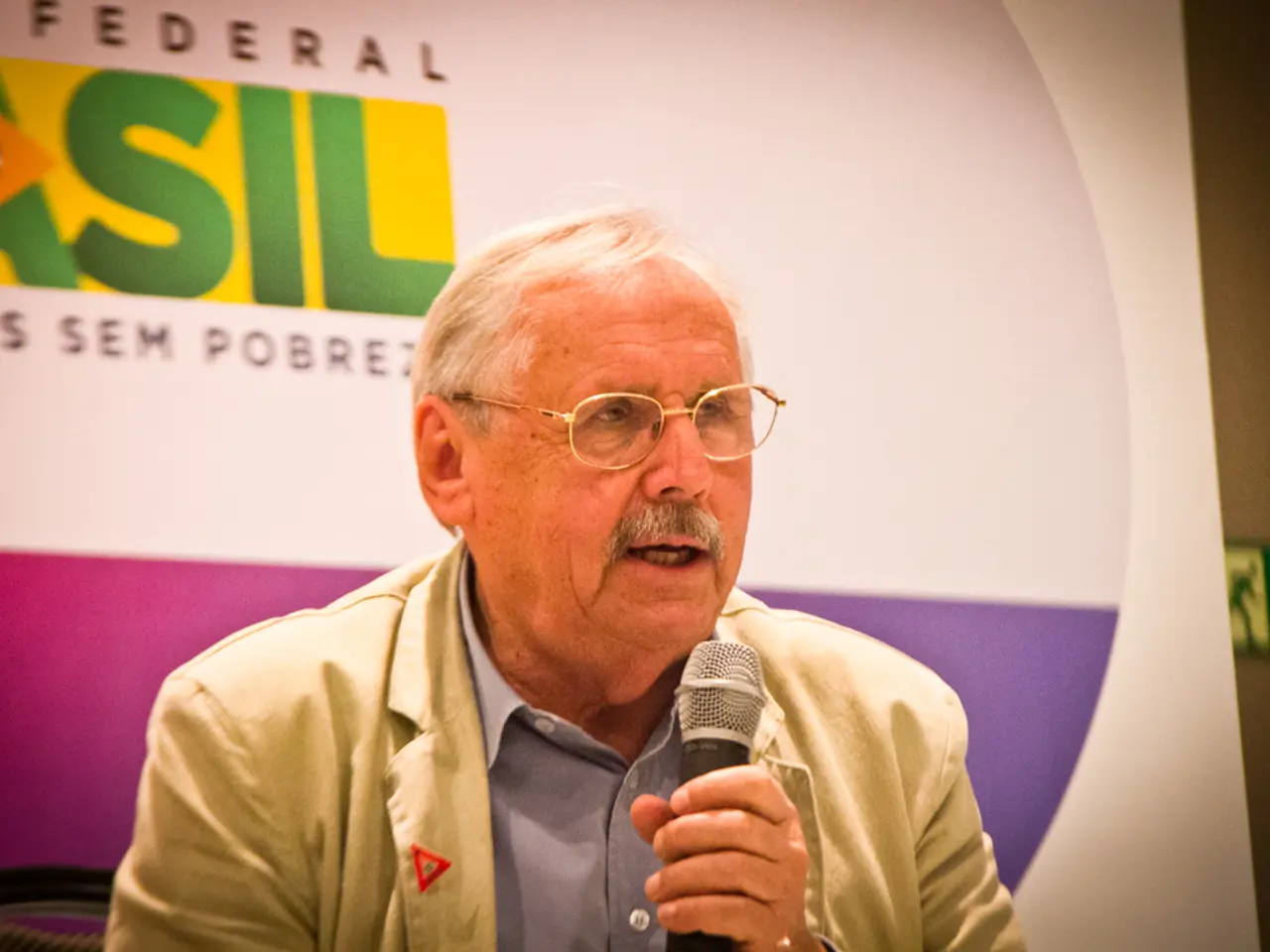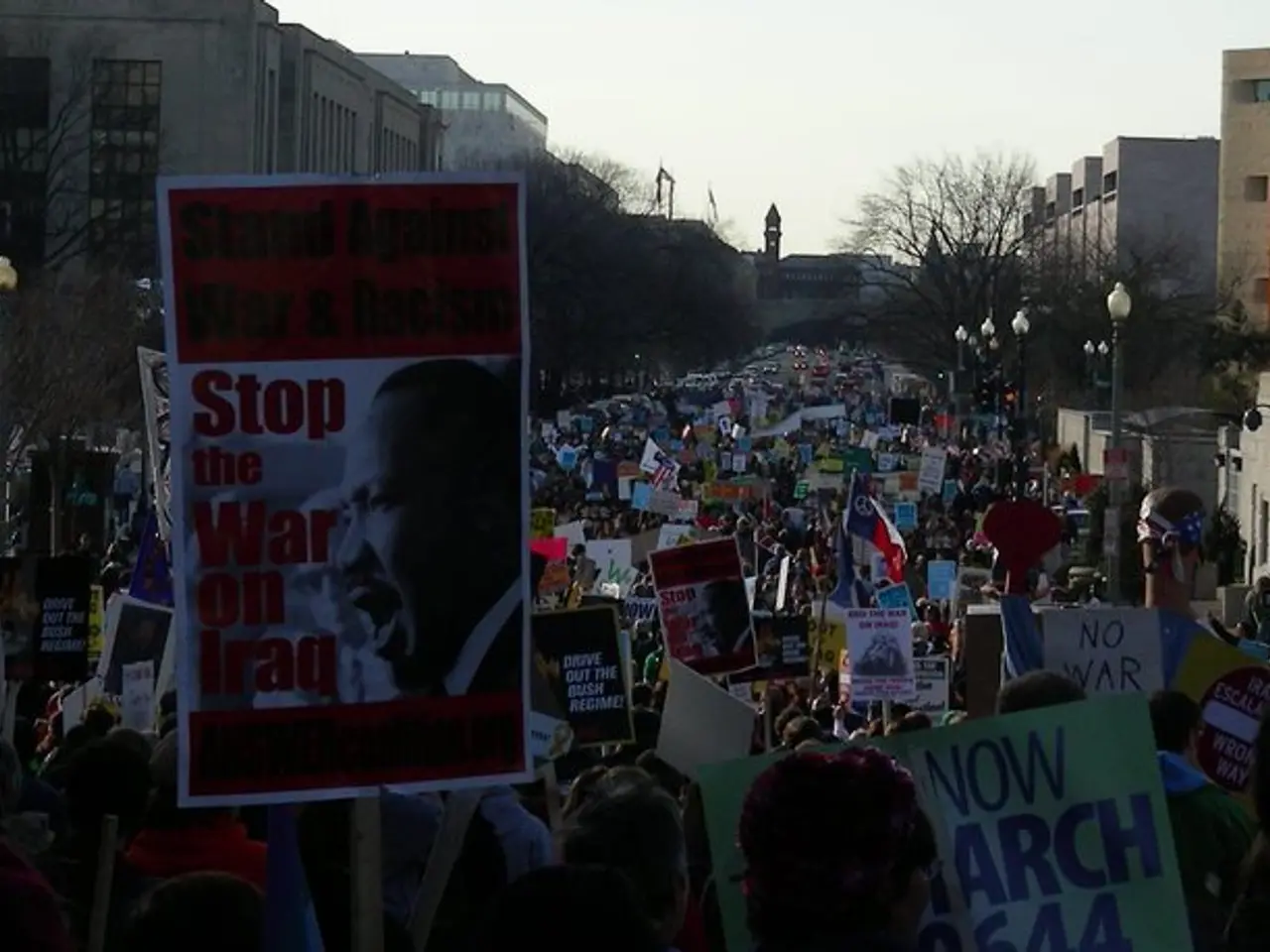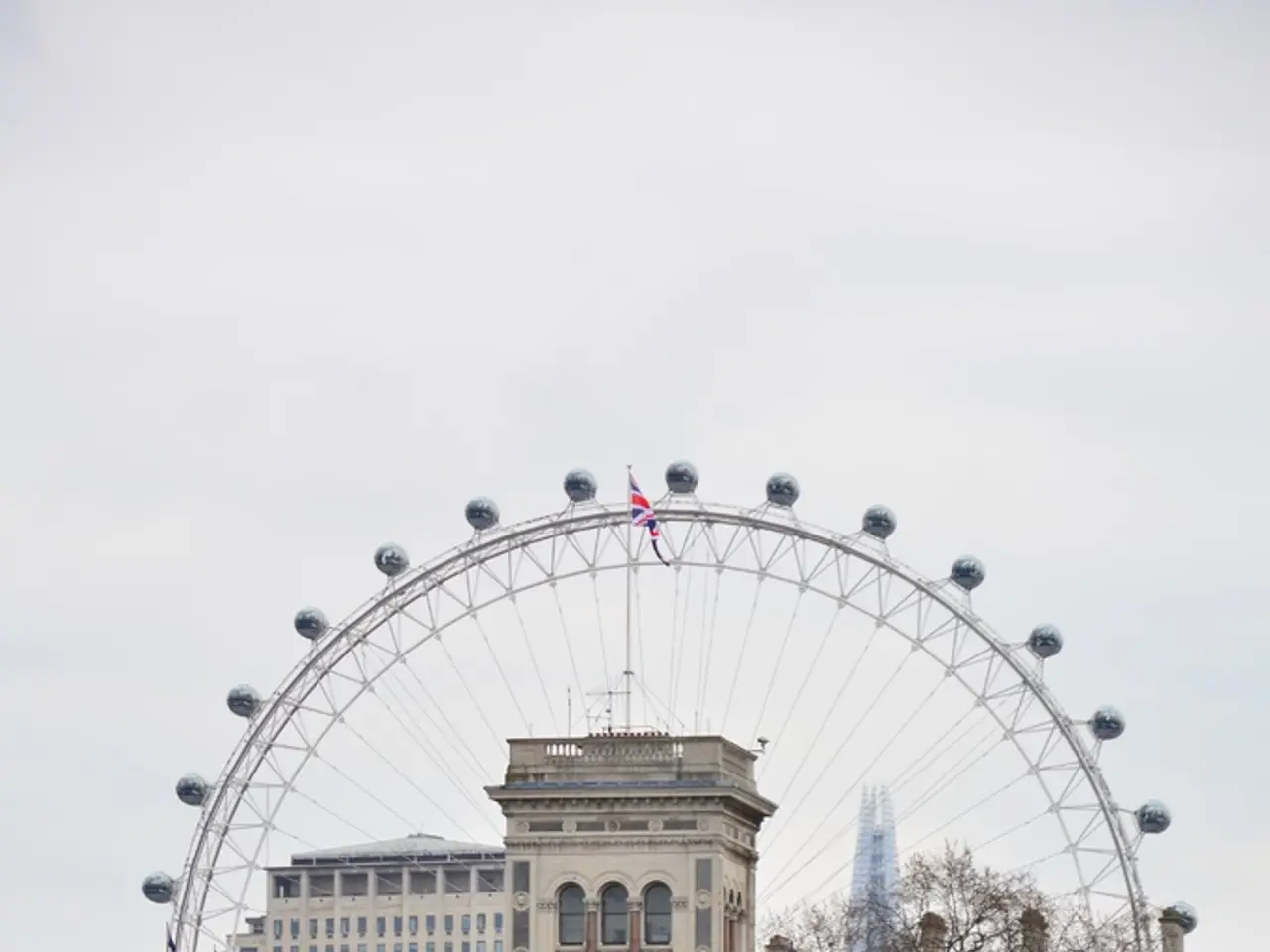Trump-Putin meeting in Alaska appears a gradual setback for Ukraine
In the upcoming summit between US President Donald Trump and Russian President Vladimir Putin, a contentious land deal is on the table. The proposed agreement, favouring Moscow, involves discussions of "land swaps" where Ukraine might cede control of the Russian-occupied regions of Donetsk, Luhansk, Zaporizhzhia, and Kherson to Russia in exchange for other territorial considerations or peace guarantees [1][2][3].
However, Ukraine and its allies have strongly rejected any notion of ceding territory. Kyiv views such proposals as a threat to Ukraine’s sovereignty and territorial integrity. They see Russia’s demand as part of a broader Kremlin strategy to eliminate Ukraine as an independent state and culture, effectively ending Ukraine’s sovereignty [1][4].
European leaders have started to consider more pragmatic approaches by suggesting negotiated ceasefire lines near frontlines, but they still emphasize the need to uphold Ukraine’s territorial integrity and insist on reciprocal arrangements [5]. The impact on Ukraine’s sovereignty and territorial integrity is profound. Accepting Russian demands for territorial swaps or legal recognition of annexations would undermine Ukraine’s internationally recognized borders, grant legitimacy to what Kyiv and most of the international community consider illegal occupations, and set a precedent for forced territorial concessions under military pressure [1][2][3][5].
Ukrainian President Volodymyr Zelensky has rejected the proposal to cede land, a stance echoed by Trump's allies and Republicans who may remind the US President of past failures in dealing with Russia [6]. The proposal by Trump's envoy, Steve Witkoff, suggests Ukraine should cede the remainders of the Donetsk and Luhansk regions in exchange for a ceasefire [7].
Meanwhile, Putin's forces are reportedly making strategic gains on the frontlines in Ukraine [8]. The location for the summit between the two leaders is Alaska [9]. Critics warn that any compromise could constitute a major setback for Ukraine’s territorial integrity [1][2][3][4][5].
As the summit approaches, the situation in Ukraine appears to be a slow defeat for Kyiv. A third round of sanctions against Russia has passed without any significant impact [10]. The Kremlin head has promoted the idea of taking ground without a fight, and he has proposed a return summit in Russia after the Alaska meeting [11]. The former KGB spy Putin is expected to meet with Trump, a man whose thinking about Putin has allegedly evolved, using words like "disappointed" and "disgusting" to describe him [12].
The upcoming summit in Alaska is described as a potential way towards peace in Ukraine, but without Ukraine's involvement in the discussions [13]. The rest of Donetsk, particularly the towns of Kramatorsk and Sloviansk, would be a much nastier prospect if ceded, as thousands of civilians live there [14]. The conditions around the summit heavily favour Moscow, raising concerns about the future of Ukraine's territorial integrity.
- The ongoing talks between US President Donald Trump and Russian President Vladimir Putin have sparked concerns among European leaders, as any compromise could result in a major setback for Ukraine's territorial integrity, potentially impacting the global political landscape in the context of war-and-conflicts and policy-and-legislation.
- The proposed land swaps involving the Russian-occupied regions of Donetsk, Luhansk, Zaporizhzhia, and Kherson bring to light the deeper political implications, as Ukraine and its allies view these demands as part of Russia's strategy to eliminate Ukraine as an independent state, which significantly affects general-news and politics on a global scale.
- In the face of potential territorial concessions under military pressure and legal recognition of annexations, it is crucial for the world community to uphold Ukraine’s sovereignty and territorial integrity, considering the profound impact these decisions could have on Europe and the world at large, especially in light of the ongoing war-and-conflicts and the broader geopolitical landscape.








